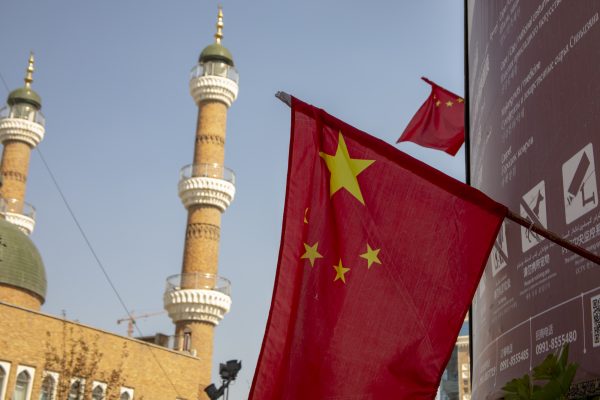BIG CAPITAL FLIGHT FROM CHINA OVER INTERNAL POLICY WORRIES
China is facing a massive trust-deficit from international investors as the country witnessed a portfolio outflow worth nearly $18 billion last month.
The communist country’s support for the Russian invasion of Ukraine and speculations, even if unfounded, of a possible Chinese strike against Taiwan, triggered the outgo.
The Institute of International Finance termed the capital flight as “unprecedented”. CNN reported: “Data from the Chinese government also showed a record bond-market retreat by foreign investors in recent months. Overseas investors offloaded a net 35 billion yuan ($5.5 billion) of Chinese government bonds in February, the largest monthly reduction on record, according to China Central Depository and Clearing. The sell-off accelerated in March, hitting a new high of 52 billion yuan ($8.1 billion).”
Financial Times says in an exclusive report: “That took outflows over the past two months to Rmb193bn as concerns mounted over China’s economic growth outlook and the debt’s diminishing yield advantage over bonds denominated in US dollars. “These are by far the greatest outflows since China began opening up its domestic bond market,” said Becky Liu, head of China macro strategy at Standard Chartered, adding that when combined with net selling of stocks, foreign investors had dumped a total of about Rmb234 billion in Chinese securities over the past two months. She said the bank expected “persistent outflows” in the second quarter.”
Portfolio managers at JPMorgan Asset Management in Hong Kong explain the outflow “was in part spurred by global investors locking in profits after a year in which Chinese bonds’ relative outperformance made holding them “pretty much required” for many investors hoping to deliver better-than-benchmark returns”. Investors and strategists said that “while renminbi debt’s yield advantage had been squeezed, payouts on Chinese bonds still offered a substantial premium over their US counterparts when adjusting for inflation”.
China has refused to condemn the Russian invasion on the ground that both are friends with “no limits”. At the same time, it is not doing anything overtly to help Russia for fear of attracting the sanctions from the west that have nearly crippled Moscow. This ambiguity is something that is scaring away the investors.
CNN quoted Martin Chorzempa, a senior fellow at the Peterson Institute for International Economics, who has studied China’s economy and US-China relations: “There is nervousness about China’s ambiguous, but Russia-leaning stance on the Ukraine conflict, which raises worries that China could be targeted by sanctions if it helps Russia.”
The American media says the flight is being caused also by the “rate hike in the United States and China’s strict Covid-related lockdowns have also played a role in scaring investors”. The issue is that the Federal Reserve of the US has increased interest rates to tame inflation coinciding with the People’s Bank of China entering an “easing cycle to bolder its faltering economy”. As a result, “China looks less attractive to investors when compared with the United States”. The net result is that in early April, “yields on China’s 10-year government bonds fell below US Treasury yields for the first time in 12 years and “the yuan hit a six-month low against the US dollar”.
The third factor, of course, is China’s strict Zero Covid policy that led to the complete shutdown of scores of cities and towns including Shanghai, its ports and airports, halting manufacturing and trade, thus increasing “uncertainties about future growth”.
That is not all. Some analysts feel that the Chinese government’s crackdown on private businesses and unicorns late last year to instil fiscal discipline has had a cascading effect on the economy, downing industry morale and making foreign investors more nervous.
Last year, the Chinese government suddenly introduced harsh laws to shut down the private tutoring market that was worth $120 billion. Several coaching behemoths were put out of business. Chinese regulators also prohibited Didi, China’s popular ride-hailing app, only days after its IPO in the US. This shocked foreign investors who lost a lot of money and the government action led to a sell-off in Chinese stock around the world.
Media reports say “there are fears that the government will continue to clamp down on sectors ranging from education to technology this year” while analysts feel “global investors don’t want to play regulatory guessing games or worry that tomorrow’s news may deplete another otherwise attractive company or business model”.
International organisations and investment banks are already lowering their growth projections for China this year. The International Monetary Fund has reduced the prediction from 4.8 to 4.4 per cent. The official prediction of of China is 5.5 per cent.
The question is where is the outflow from China being diverted to? China Underground, a Chinese website quotes Qi Wang, chief investment officer for MegaTrust Investment in Hong Kong, as saying that “some of the money moving out of China may have gone into US dollar assets, while there has also been a considerable move from China to India”.













